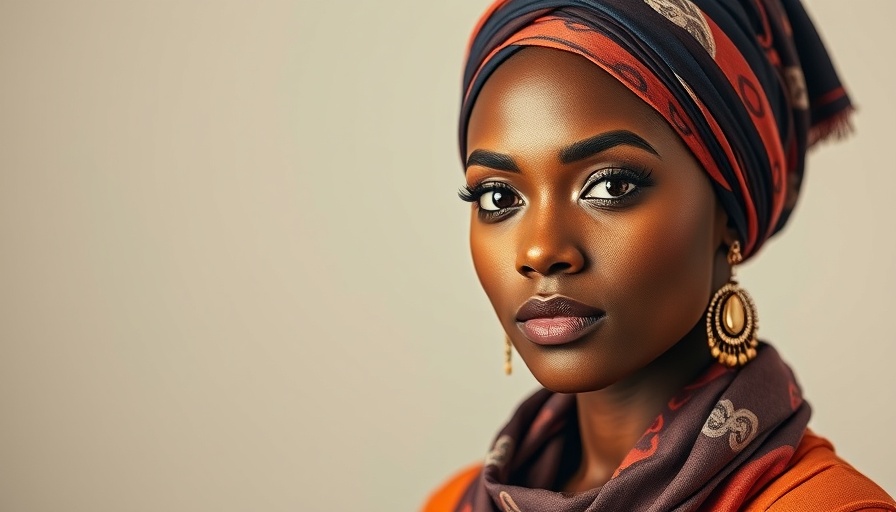
The Hidden Crisis: Boys at Risk in Today's World
In an age where conversations around empowerment and inclusivity are at the forefront, the plight of boys is often overshadowed. Did you know that six out of ten out-of-school children globally are boys? Moreover, adolescent boys are three times more likely to commit suicide than girls, which poses a critical question: Why are we neglecting boys in our discourse on youth empowerment? The upcoming International Boys' Day on May 16, 2025, themed 'Empowering Boys for a Brighter Future,' serves as a timely reminder to confront this pressing issue with urgency.
In 'International Boys’ Day: Empowering Boys for a Brighter Future,' the discussion highlights key issues surrounding the empowerment of boys, prompting us to analyze the broader implications for society.
Exposing the Systemic Gaps Affecting Boys
The discourse surrounding boys' empowerment is essential not only for their emotional and mental well-being but also for the future stability of society. In many societies, the disproportionate absence of positive male role models leaves boys struggling to navigate adolescence. The consequences of this void are evident in concerning statistics: seven out of ten juvenile offenders in Nigeria are boys, reflecting a broader trend of boys being directed towards negative paths. Addressing these systemic issues involves challenging societal norms and actively seeking to connect boys with men who exemplify integrity and empathy.
Why Male Role Models Matter
Boys learn through observation, an adage that underlines the necessity for engaging male figures in their lives. These role models play a significant role in fostering emotional intelligence as well as social skills. The absence of a father figure or positive male influence often leads to a perpetuating cycle of disconnection. The necessity to expose boys to men who can model vulnerability alongside strength cannot be overlooked. This duality helps boys form healthier identities, pinpointing the importance of gender equality in discussions surrounding emotional growth and societal responsibilities.
Challenging the Norms: Emotional Intelligence for Boys
We live in a world where emotional expression is often equated with weakness, particularly among boys and men. Engaging boys in conversations about emotions and vulnerabilities sheds light on the importance of mental health awareness. To combat societal pressures towards sheer dominance, men must step up as mentors who demonstrate that vulnerability is a strength. This could involve casual mentorship, engaging in organized programs such as the King's Club launched by the DSVA, which connects mentors with teenage boys in need of guidance.
Recognizing the Impact of Societal Structures
Addressing the crisis of boys today requires acknowledging the broader societal structures in place. Many men miss the mark in recognizing their crucial role in fostering positive development in the younger generation. For instance, in Nigeria, it was highlighted that existing educational data often masks grim realities, particularly in the southern regions where more boys are out of school than girls. Therefore, it is essential for communities to create initiatives aimed at bridging this educational gap for boys through targeted mentorship and support.
Bridging the Divide: A Call to Action for Men
It’s crucial that men recognize their role in nurturing a future generation of responsible young men. This nurturing process is not limited to biological fathers; brothers, uncles, mentors, and community leaders all hold the potential to impact boys’ lives. This makes it vital for men to actively advocate for and engage with boys. The conversation should not end with acknowledgment; instead, it should translate into sustained action and commitment to work hand-in-hand with women to create an environment where boys can thrive.
The emotional and mental well-being of boys is inextricably linked to the structural dynamics within society. To effectively address the crisis facing boys today, men must begin to stand alongside women and take collective accountability for nurturing the next generation. The tragic irony remains that despite the significant demands placed on children, boys continue to be left behind.
With the rising conversation surrounding gender narratives, we can't allow boys to languish in the absence of impactful discussions that encourage their growth and empowerment. Getting involved as a mentor or supporter of programs designed to uplift boys is a step towards creating a more balanced society that respects and nurtures its future.
 Add Row
Add Row  Add
Add 


Write A Comment